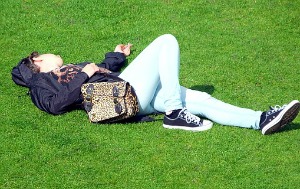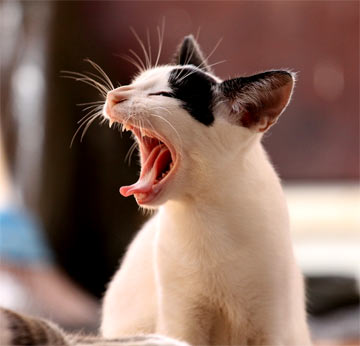Teenagers have been a breed of excessive sleepers since the dawn of time. Whether they’re outside until the crack of dawn or staying up far later than they probably should, there are a lot of ideas on what can cause a poor night’s sleep. Parents and guardians around the world have been increasingly concerned about the use of electronic devices and how they impact sleep. Whether these  well-meaning adults are concerned with video game usage or texting on smartphones late at night, the fact remains that they believe that this overuse of technology must be having a negative impact on the young mind.
well-meaning adults are concerned with video game usage or texting on smartphones late at night, the fact remains that they believe that this overuse of technology must be having a negative impact on the young mind.
Honestly, if little Evan could just pull his eyes away from his table for 24 hours he’d sleep better and if little Chantelle could just put the video game controller down for once, it would be better for her, right? Well, that’s not necessarily the case:
Taking away a teen’s phone or tablet at night does not make them sleep better or longer nor does it mean they will perform better in sports the following day, a new study of young athletes has found.
The investigation into the impact of electronic devices revealed no change at all among the Australian Institute of Sport’s junior judo champions.
The teens whose phones and tablets were taken away for a few days continued to fall asleep at exactly the same time at night and performed just as well as before in training, according to lead researcher Ian Duncan from the Centre for Sleep Science at the University of Western Australia.
“We thought they would go to sleep earlier … because that’s what middle aged and older people do in similar studies,” he said.
“However, these guys were so young — between 16 and 19 — and they did go to bed earlier but they didn’t fall asleep and we think that’s because teens have that locked-in owl-like sleep behaviour … it’s like asking a 30-year-old to go to sleep at 5pm. They just can’t do it.”
The researchers monitored the effects of the removal of electronic devices for 48 hours in 23 judo athletes during a six-day training camp at the Australian Institute of Sport. The athletes wore an activity monitor to measure sleep quality.
The researchers found that although athletes went to bed earlier when the devices were removed, they fell asleep at the same time as those who had access to electronic devices. Removal of the devices did not affect their sleep quality, or next-day physical performance compared to those who continued to use electronic devices. The athletes did not have televisions in their shared rooms throughout the study.
So take that, concerned adults! Even if your kid is up until the wee hours of the morning that doesn’t mean they’re getting a poor sleep based on device usage alone. Chalk this up as another sleep myth. It seems to be just a part of their biological structure to stay up late. You can’t go fighting your biology and at this age, a youths body is going to tell them when they should be sleeping. So should you probably lay off? Well, keep in mind this article has everything to do with lack of sleep and nothing to do with lack of attention span, which of course seems to be generated by these devices.
So be hard on your kids more because their brains are being damaged by too much device time. Not because it is stopping them from sleeping, but because, come on! There’s no need to be looking at a screen 24 hours per day. A good parent understands that this simply does not make any sense.

 There are some simple truths, however, and a key one is that we all need a good amount of sleep to survive. For most people, that means anywhere from 6-8 hours of sleep per night. This is the same kind of sleep that can be easily interrupted by snoring, which is why many people may be overestimating the sheer amount of sleep they’re actually receiving.
There are some simple truths, however, and a key one is that we all need a good amount of sleep to survive. For most people, that means anywhere from 6-8 hours of sleep per night. This is the same kind of sleep that can be easily interrupted by snoring, which is why many people may be overestimating the sheer amount of sleep they’re actually receiving.